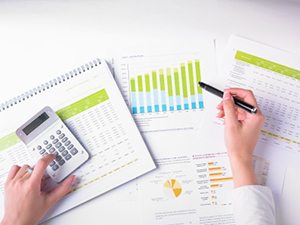Commodity investments can provide higher returns than alternative investments – but the risks are higher and investors need to be familiar with the different markets.
What are commodities?
Commodities are tangible investments rather than intangibles like bonds or stocks. The sector splits into four markets:
- Energy – like coal, oil or gas
- Metals and minerals – like copper, iron ore or nickel
- Precious metals – like gold, silver or platinum
- Agricultural commodities – like wheat, forestry or fertilizers
How do invest in commodities?
The obvious way is to own the asset outright, but this often comes with extra issues and costs.
For instance, storing gas or oil needs expensive tanks and precious metals needs guarding in safety deposits. Other costs are also involved, like insuring against theft.
Easier ways of investing in commodities include buying shares in mining companies or looking at the futures markets, which is effectively betting on rises and falls in the market.
Exchange Traded Funds (ETFs) are also a way into commodity investments.
Backwardation and contango
Commodities can mean learning a whole new language – backwardsation is when the spot price is lower than the price of futures, while contango is the opposite – the futures price is higher than spot.
Futures are a gamble and knowing when to sell and if the market is moving away or towards contango is a key knowledge factor.
Why invest in commodities?
Commodities like gold are often considered ‘safe haven’ investments in a time of stock market volatility and high inflation.
Many investors feel more confident with a solid tangible investment.
Commodities also offer a way to diversify a portfolio, providing the investor has considered the risk involved with commodities.
What affects prices?
Supply and demand are big influences on commodity prices. Poor harvests can affect the prices of commodities like wheat, while new discoveries and technological advances, like the current interest in shale oil and gas can suddenly kick the market to rise or fall.
What to consider when investing in commodities
Investors need to think about if they can afford to expose themselves to risk – like a sudden drop in the market.
The investment horizon is also important.
Commodities tend to roll in cycles, with different terms for different commodities. For instance, agricultural commodities typically have an annual cycle.
Investors looking at short horizons should consider looking at funds that track the markets, while those taking a longer view might consider investments in companies producing the commodities.
Diversification is always an important factor – even within commodities an investor may not want to tie up cash in just one market.
